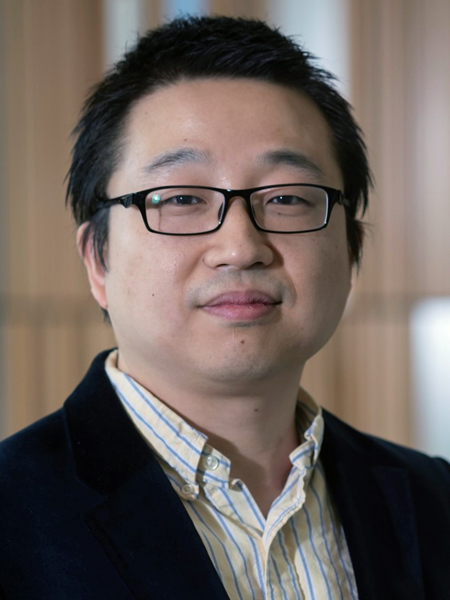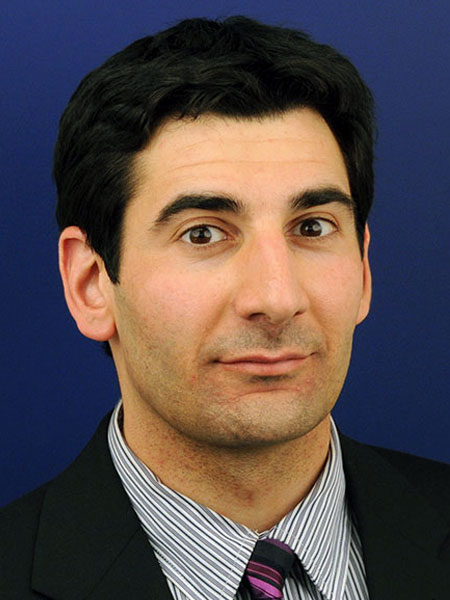The Future Is Now
The Build @ Scale Laboratory
Within the new Gateway Complex, just north of Grissom Hall, the home of School of Industrial Engineering, Build-It-At-Scale laboratory is starting to take shape and will open in fall of 2022. Patrick Brunese, or Doc B, shares the School's vision for the laboratories.
Rethinking the Classroom Experience
In addition, faculty have been rethinking the undergraduate experience, putting the students' knowledge discovery in to focus. How to shift from a traditional educational process to a problem-forward approach at scale has been a focal point for IE faculty and staff since 2019. Seven faculty have begun transformation initiatives for their core classes and a new course experience that incorporates learning objectives from multiple courses has been piloted for the 2021-2022 academic year. Using a project-based learning method, IE and first year students explore core IE concepts from engineering economics, statistics, computing, and manufacturing through working on community projects.
Throughout this process, faculty have been developing and experimenting with methods to motivate students to facilitate their own learning experience. By adopting a problem-forward learning approach, students are able to directly engage with concepts throughout the curriculum, creating a more engaging learning environment. This approach leads students to develop broader and deeper professional skills.
Virtual labs have been gaining ground in the College of Engineering. By combining mixed reality technologies with physics-based modeling and simulation and authentic machine interfaces, virtual labs are enriching learning. To expand the reach of this innovative instructional approach, the College has launched the Virtual Labs Faculty Fellows program, and has selected and engaged the first cohort of fellows.

Ravi and Eleanor Talwar Rising Star Assistant Professor, Industrial Engineering
Course: IE 370: Manufacturing Processes I
Students will gain familiarity with milling tooling and computer numerical control (CNC) operation. The virtual lab will acquaint them with the physical labs (e.g., equipment, operation procedures, and safety steps) beforehand. This will boost efficiency in the physical labs, as well as enrich students’ experience in lab sessions through more interaction with tools/equipment and opportunities for longer, more complex experiments.
Each fellow has received $10,000 in discretionary funding. College experts are teaching the workshops, supported by specialists from Purdue’s Envision Center, which will produce the virtual labs, and Center for Instructional Excellence (CIE). The new virtual labs, each of which will complement or replace one or two weeks of lab activities in a course, are expected to be deployed by the 2022-2023 academic year.

“We are excited about the continued growth and adoption of virtual labs within the Purdue Engineering curriculum,” said Michael D. Sangid, Elmer F. Bruhn Associate Professor of Aeronautics and Astronautics, Professor of Materials Engineering, and Dean’s Fellow for Virtual Labs. “The faculty are exploring endless possibilities for the delivery of educational material through virtual labs, which provide opportunities to transcend the constraints of physical labs.” Sangid initiated and is leading the virtual lab summer development program.
Sangid added: “Purdue already is at the cutting edge of virtual labs. We created the Faculty Fellows program to help us attain our vision of becoming the international leader in virtual labs for education, and are the first university to widely adopt and deploy virtual labs across its entire engineering curriculum.”
“Improvements and standardization of web-deployed 3D content and related production tools over the last decade have allowed the Envision Center to take educational and research content into much broader and accessible platforms,” said George Takahashi, lead visualization scientist at the Envision Center, who is leading development and production aspects of virtual labs. “These experiential learning platforms supplement or even enhance traditional labs through advanced visualization, computation, and intuitive interaction. Making this content available online enables students to learn at their own pace while alleviating logistical constraints with physical spaces and equipment.”
“Engaging with virtual labs allows students to develop skills, including procedural and visualization skills, critical thinking, and metacognition, at scale without restrictions on time, space and materials,” said Erica Lott, senior instructional developer for the CIE, who is leading educational aspects. “Faculty can use virtual labs in and outside of the classroom to convey tangible and abstract concepts, identify and address alternate conceptions, and work on discipline-specific skill development in order to provide students the opportunity to develop a deeper understanding of the content and its application.”

